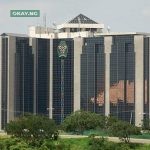A Russian Soyuz spacecraft with three crew on board has successfully docked with the International Space Station, Nasa has said.
Russian cosmonaut Mikhail Kornienko and American astronaut Scott Kelly are to spend 342 days aboard the orbiting laboratory – about twice as long as a standard mission on the station.
The stay is aimed at measuring the effects of a prolonged period of weightlessness on the human body, a step toward possible missions to Mars or beyond.
“This is the first time we’re doing it as an international partnership, which I think is one of the great success stories of the International Space Station,” Mr Kelly said at a news conference ahead of the launch.
“If we ever go beyond Low Earth orbit again, perhaps to Mars, because of the cost and the complexity it will most likely be an international mission, so I see this as a stepping stone to that.”
The physical effects of a year in space will be closely monitored by doctors on the ground in an unprecedented study of how the human body withstands the rigours of spaceflight before humans plan to journey to Mars.
Mr Kelly said he was concerned about the impacts of radiation and living in zero gravity, particularly in terms of compromised immunity and bone and vision loss.
“I’m hopeful that there is not a big cliff out there with regards to our ability to stay and live and work in space for longer periods of time,” he said.
“But we are not going to know that until we have actually done it,” he added. “The jury is out.”










